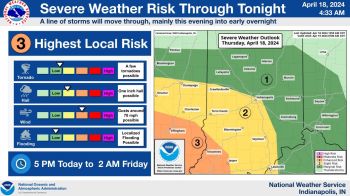Texas Attorney General Ken Paxton this week filed suit demanding the U.S. Supreme Court block the Electoral College votes of Georgia, Michigan, Pennsylvania, and Wisconsin on the grounds that the election proceedings in those states violated pre-existing state laws.
“These elections in other states where state law was not followed … affects my voters because these are national elections, and so if there are fraudulent things or things that affect an election and state law is not followed as is required by the Constitution it affects our state,” Paxton told “Fox & Friends” on Wednesday. “It affects every state.”
“We can’t go back and fix it, but we can say, OK, let’s transfer this to the legislature … and let them to decide the outcome of the election. That would be a valid constitutional situation,” Paxton added.
The legal challenge seeks to invalidate the 62 Electoral College votes from those four battleground states and award Trump a second term, alleging unconstitutional changes to election rules before the vote.
Todd Rokita, the incoming Attorney General for the State of Indiana, joined WIBC host Tony Katz Wednesday morning to explain his support of the Texas suit.
Rokita: “The precedent for this challenge goes all the way back to Bush vs. Gore. And what that cause said was a perfect case of unequal protection. What the Constitution says is that if we are going to have a law, it has to apply to each of us equally.
“In Florida at the time, some counties were counting ballots one way, while other counties were counting ballots another way. And the courts finally came down, stopped the recounts, and President Bush won the election.
“We have the same kind of things happening in Pennsylvania and in other states where counties were treating voters differently. Presumably, in more Democratic counties where voters were allowed to cure their ballots that were mailed in or were absentee – those were allowed to be counted – whereas predominantly Republican counties followed the law and their voters were NOT counted.
“So there is a Constitutional precedent for this, and we have to get this right. We’re either going to be a country that is ruled by law and equal application of the law, or we’re going to be a country that is run by unelected bureaucrats.”
Rokita explained that the suit filed in the state of Texas argues that it was adversely impacted by the unconstitutional actions of nonlegislative actors in other states.
Rokita: “This is a case of original jurisdiction, and if there’s a dispute between states, that goes right to the Supreme Court.”
The United States Supreme Court on Tuesday evening, December 8, ordered Pennsylvania, Michigan, Wisconsin, and Georgia to reply to the lawsuit filed this week by Attorney General of Texas Ken Paxton.
The Supreme Court posted online Tuesday evening: “Response to the motion for leave to file a bill of complaint and to the motion for a preliminary injunction and temporary restraining order or, alternatively, for stay and administrative stay requested, due Thursday, December 10, by 3 pm.”
Rokita: “It’s a very simple argument, Tony. The laws have to be applied equally, they weren’t in these other states, and we were impacted.”
Rokita cautioned, however, that the Supreme Court will always tend towards the path of least resistance.
Rokita: “Overturning an election is a very draconian measure. So the Court is going to find any way it can to avoid doing that. But on its face, this is unconstitutional, and the only thing to do at this juncture is for the legislatures of these states to seat the electors.”
Click below to hear Tony’s full interview with the incoming Attorney General for the State of Indiana Todd Rokita.













